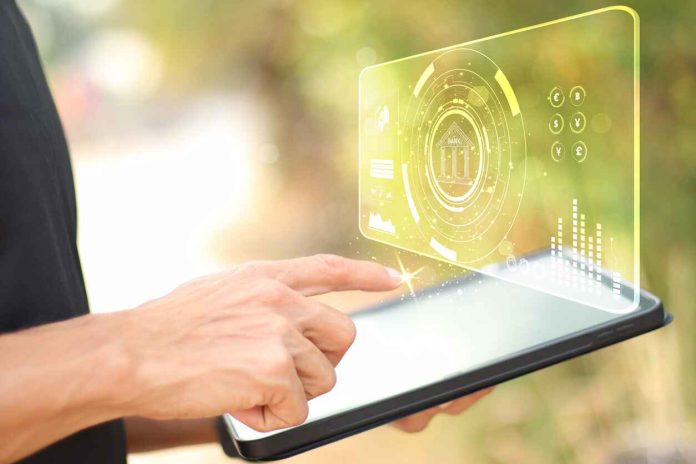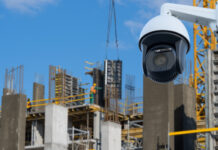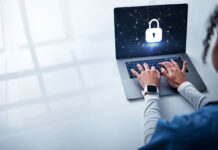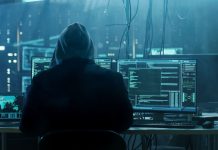Online banking is a more convenient option for managing your finances, but it carries additional risks. Before you do anything else, it’s essential to understand the potential security risks of online banking and how cybercriminals may try to access your sensitive financial information.
Cybercriminals use phishing emails, malicious hyperlinks, malware, and “man in the middle” attacks to access your online banking account. By understanding these threats and the techniques used by cybercriminals, you’ll be able to take steps to adequately protect your finances and ensure that no one can access them unlawfully.
1. Implement Secure Passwords and Logins
Good password and login security are one of the most important steps you can take to protect your finances during online banking. A combination of a strong password can help protect against identity theft and keep your accounts safe from hackers.
Here’s how you can succeed at password security:
- Create unique passwords for each account. Use a different password for multiple online accounts! Storing unique, complex passwords for each of your online financial statements will help ensure that even if one is hacked, the others remain secure.
- Use a system that tracks all your passwords. There are apps designed to store all your passwords in one place, meaning you don’t have to remember every combination yourself. This can be a great way to ensure more secure logins across multiple sites.
2. Add Extra Layers of Security With 2FA
Another great tip for securing your online finances is using two-factor authentication (2FA). It’s easy to set up and adds an extra layer of security to your banking. You’ll need a password and a security key when you log in to your bank. In this way, if someone tries to hack your account, they’ll need more than just your password.
One common 2FA approach is a code sent via text message after you’ve entered your username and password. Other applications use biometric technologies such as fingerprint recognition or facial recognition. And yet other sites might offer the option to use a physical security key as an additional form of authentication.
Before using any type of two-factor authentication, make sure the technology you use meets the same standards banks use. Look for solutions that offer strong encryption, secure algorithms, and advanced authentication technology like multi-factor authentication to ensure the highest possible security level for your online finances.
3. Prioritize Privacy With a Virtual Private Network (VPN) Provider
Regarding banking security, one of the most important things you can do is prioritize privacy by getting yourself a Virtual Private Network (VPN) provider. A VPN creates an encrypted connection between your device and a remote server to keep your activity private and secure. Using a service like a VPN also masks Your IP address and location preventing any malicious websites from even knowing where you are in the first place.
Here are some of the key benefits you get when you use a VPN for online banking:
- Seamless access to Internet services from anywhere in the world
- Strong encryption that prevents hackers from stealing your financial information and passwords
- Anonymity when accessing bank accounts or making deposits
- Protection from cyber-attacks and malware
So if you’re serious about protecting your finances, using a secured and encrypted VPN provider such as AstrillVPN, or Surfshark must be considered.
4. Avoid Using Public WiFi Networks for Sensitive Transactions
When it comes to online banking security, one of the best tips you can follow is to avoid using public WiFi networks for sensitive transactions. Private WiFi networks are less secure than private WiFi networks as they offer fewer layers of protection. You should not use a public network for any type of sensitive activity, especially in banking or making financial transactions. You can always find out who monitors the network and potentially captures your data.
Fortunately, there are a few steps you can take to keep yourself safe when using a public network:
- Use a VPN for added protection. By connecting to a VPN, you will benefit from an extra layer of encryption that can help protect your data from cybercriminals.
- Don’t access banking or other sensitive sites on public Wi-Fi. Stick with accessing sites that don’t involve any kind of financial information or account passwords while using public Wi-Fi.
- Keep your operating system updated. If your operating system isn’t up to date with the most recent patches and security updates, you may be putting your computer at risk by using it on a public Wi-Fi connection.
5. Regularly Check Bank Notifications & Statements
When it comes to online banking security, you need to get in the habit of checking your bank notifications and statements regularly. This way, if anything suspicious appears, you can catch it right away. You can also look out for suspicious activity you weren’t aware of before and then take the necessary steps to resolve it quickly.
When you review your bank notifications and statements regularly, there’s a chance you could spot any:
- Unfamiliar transactions with incorrect details
- Unexpected expenditures or withdrawals
- Unusual changes in account balances or credit limits
- Unauthorized third parties accessing your account information
- Attempts at identity theft
Setting aside weekly time to check your bank notifications and statements makes good sense. By taking a few minutes each week to double-check your accounts, you can protect yourself from potential hackers and scammers who may be looking for access to your finances.
Conclusion
Becoming more security conscious about online banking is a great way to protect yourself from malicious actors and cyber-attacks. Following the tips outlined above, you can ensure your personal information and online banking details are safe and secure.
Use strong passwords, avoid public Wi-Fi, and use a secured and encrypted VPN provider while connecting to public networks or banking websites. Make sure to change the passwords associated with your accounts regularly and check your bank statements for any suspicious activity. Following these simple steps can help you protect your finances and personal information.




































































